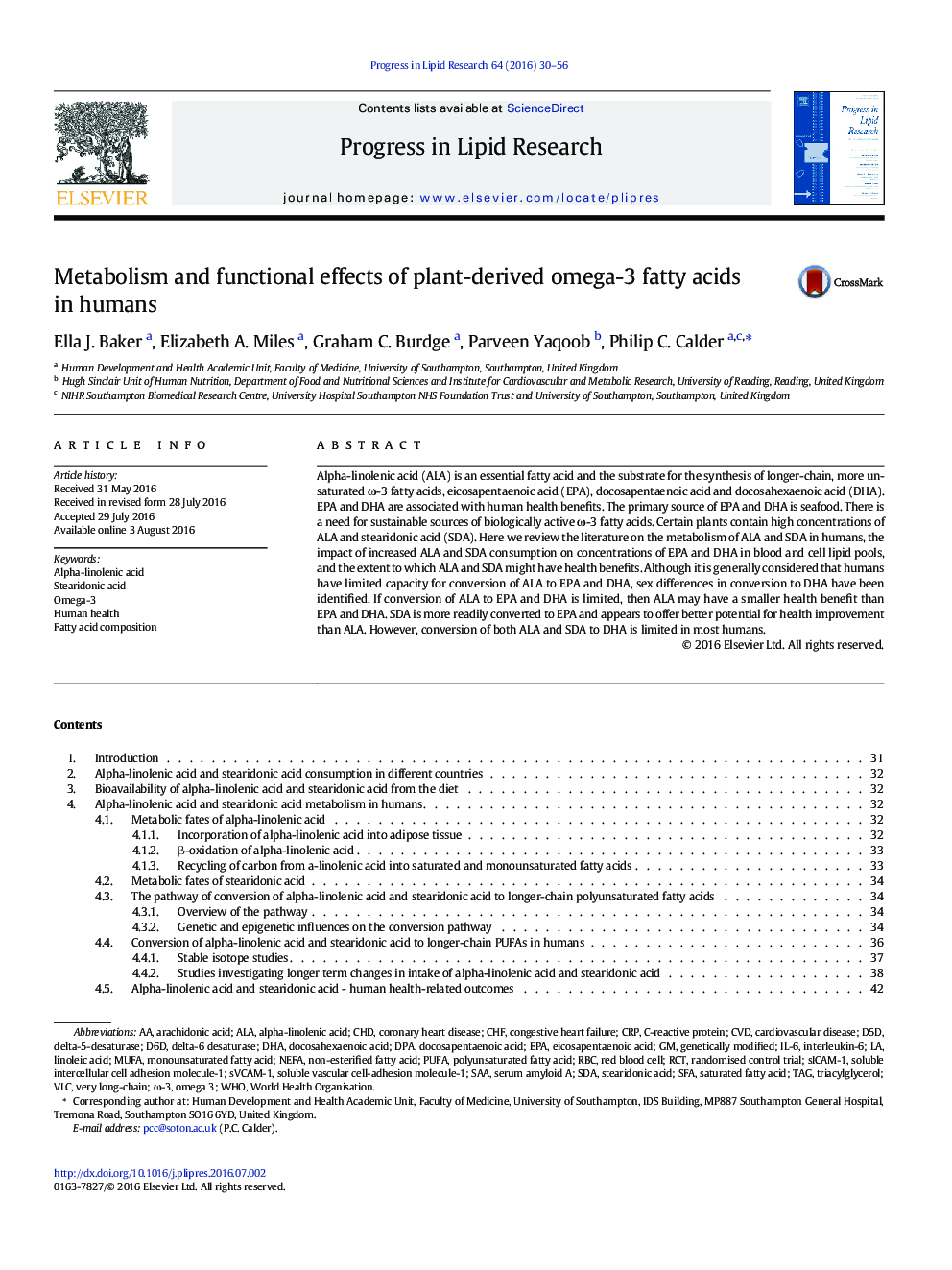| کد مقاله | کد نشریه | سال انتشار | مقاله انگلیسی | نسخه تمام متن |
|---|---|---|---|---|
| 2019079 | 1542166 | 2016 | 27 صفحه PDF | دانلود رایگان |
Alpha-linolenic acid (ALA) is an essential fatty acid and the substrate for the synthesis of longer-chain, more unsaturated ω-3 fatty acids, eicosapentaenoic acid (EPA), docosapentaenoic acid and docosahexaenoic acid (DHA). EPA and DHA are associated with human health benefits. The primary source of EPA and DHA is seafood. There is a need for sustainable sources of biologically active ω-3 fatty acids. Certain plants contain high concentrations of ALA and stearidonic acid (SDA). Here we review the literature on the metabolism of ALA and SDA in humans, the impact of increased ALA and SDA consumption on concentrations of EPA and DHA in blood and cell lipid pools, and the extent to which ALA and SDA might have health benefits. Although it is generally considered that humans have limited capacity for conversion of ALA to EPA and DHA, sex differences in conversion to DHA have been identified. If conversion of ALA to EPA and DHA is limited, then ALA may have a smaller health benefit than EPA and DHA. SDA is more readily converted to EPA and appears to offer better potential for health improvement than ALA. However, conversion of both ALA and SDA to DHA is limited in most humans.
Journal: Progress in Lipid Research - Volume 64, October 2016, Pages 30–56
